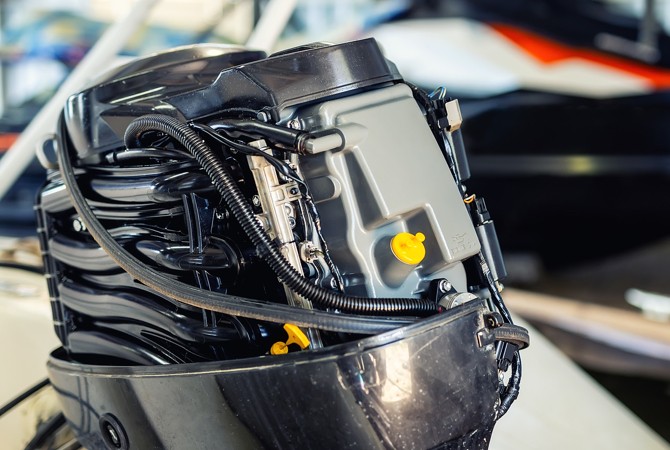Problem
Nothing can ruin a day on the water like a marine engine that stalls. Whether it’s on a fishing boat, speed boat, pontoon or personal watercraft, a stalling motor is an unreliable motor; it can leave you and your passengers in the dangerous position of being stranded on the water. Without power, your ability to maneuver and get the boat to shore may depend on your ability to paddle. Until the problem is resolved, your boat won’t leave the dock.

Causes
Just like the gas engine in your car, truck or SUV, your gas-powered marine engine needs three things to run properly:
- Air
- Fuel
- Spark to ignite the air/fuel mixture
Incorrect amounts of air or fuel will cause the engine to run sporadically or not at all, as will a weak or improperly timed spark.
Symptoms
A stalling boat engine may or may not give you any warning. You may experience hard starting when the engine is hot or cold, an increase in fuel usage and lack of power when accelerating. Stalling problems can be traced to:
Fouled Spark Plug
A spark plug fouled by fuel, carbon, dirt or oil on the electrodes may not produce a spark strong enough to ignite the air/fuel mixture and start your engine.
Clogged Flame Arrestor/Air Box
A dirty flame arrestor/air box can cause your boat engine to stall. Remove the debris using carb cleaner and a wire brush. Air boxes, especially those that are stored in non-marine environments, are susceptible to being clogged with debris such as animal nesting. Make sure the air box is free from debris prior to each startup.
Stale Fuel
If this is the first time you have tried to run the engine this season, fresh gas may be in order. Gas can go stale in as few as 30 days, especially fuel mixed with ethanol as it is in many areas. Ethanol attracts moisture over time and the moisture will dilute the gas.
Low Compression
Worn piston rings, cylinders and leaking valves can lead to low compression in your boat motor. Without proper compression, the engine can struggle to complete the combustion process leading to decreased performance.
Defective Airflow Sensor
If your boat motor is fuel injected, a dirty or defective airflow sensor can cause poor engine performance. Cleaning or replacing the airflow sensor may clear up your stalling problems.
Dirty or Worn Carburetor or Linkage
A dirty carburetor can’t properly regulate the air and fuel mixture that the engine needs to run which can lead to stalling problems. In addition, a worn shift linkage (if your engine is equipped) can cause stalling and engine performance issues.
Defective Idle Air Control Valve
Designed to regulate the engine idle speed, a malfunctioning idle air control valve can cause the engine to stall.
Damaged Fuel Line
The inside of the fuel hose is susceptible to deterioration. If left unchecked, it can cause stalling and in extreme cases engine failure.
Solutions
Replace fouled or dirty spark plug.
Clean flame arrestor/air box if it's clogged or dirty.
Replace old gas with fresh gas (properly dispose of old gas).
If none of these suggestions stops your engine from stalling, then it’s time to call on a professional mechanic who specializes in marine engines. Have your engine thoroughly inspected paying close attention to:
Pistons, cylinders & valves
Airflow sensor
Carburetor & linkage
Idle air control valve
Fuel Line
Learn more about marine spark plugs and marine batteries, find your part, or find where to buy your part today.
The content contained in this article is for informational purposes only and should not be used in lieu of seeking professional advice from a certified technician or mechanic. We encourage you to consult with a certified technician or mechanic if you have specific questions or concerns relating to any of the topics covered herein. Under no circumstances will we be liable for any loss or damage caused by your reliance on any content.
Related Parts
Champion® offers a wide variety of products for all your automotive needs.
Check them out!